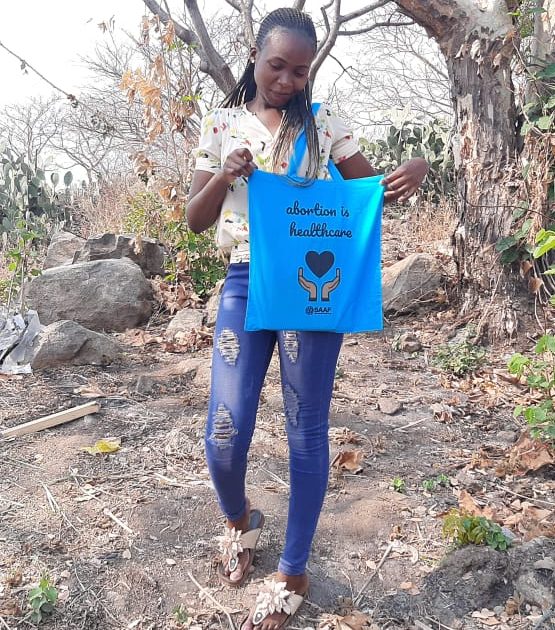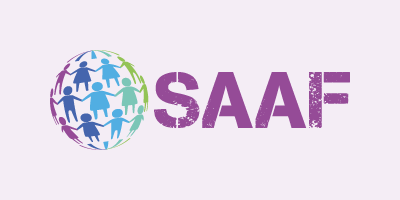
Sub-Saharan Africa
As a youth-led organisation, JVS will work mainly with young people between 15 and 35 years old through their SAAF-funded work.
They aim to improve young people’s knowledge of the newly updated abortion law in Benin, as well as their ability to access reproductive health services. JVS will deliver community awareness raising sessions to discuss reproductive rights, as well as an online campaign to share information and promote access to safe abortion as a human right.
JVS will provide practical support to young people by supporting referrals to trusted providers. They will also set up the country’s first hotline dedicated to safe abortion information.
Visit the JVS Facebook page.
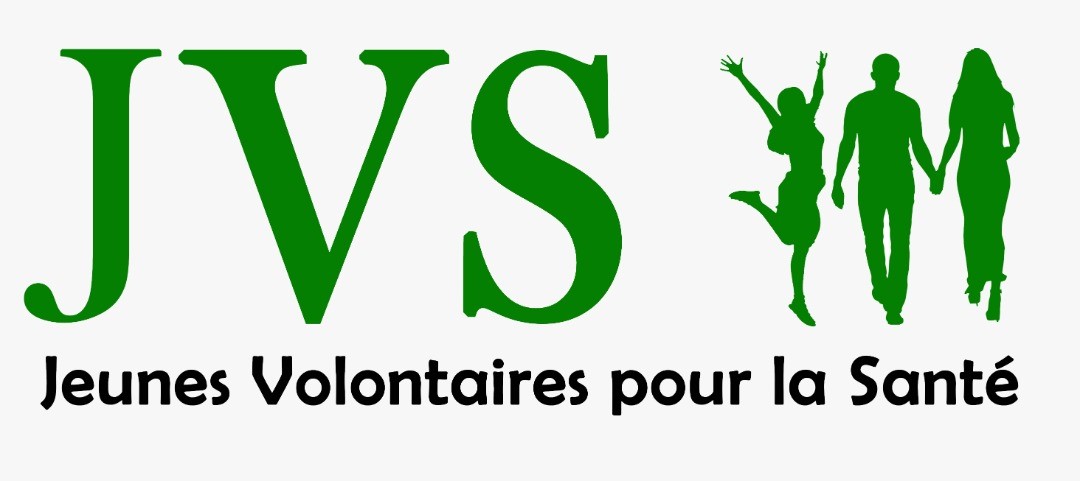
ONIDS is an organization composed of activists, mostly women, girls and teenagers. The organization is committed to the promotion and protection of the social and health rights of the most vulnerable and marginalized people and aims, through awareness raising, training and advocacy, to improve the well-being of marginalized people using a collaborative and human rights-based approach.
The liberalisation of some aspects of the abortion law in Burkina Faso in 2018 remains unknown by the general population but also by many working in the fields of health, education, and the law. ONIDS' SAAF funded work focuses on sharing information about the conditions of access to abortion and to direct women seeking care towards safe providers.
Visit the Organisation pour de Nouvelles Initiatives en Développement et Santé (ONIDS) website.

In Burundi, unsafe abortion is one of the leading causes of death and disability among women and girls. Post-abortion care services, when available, are almost exclusively clustered in the Burundian capital and other major urban centers. The further away from these urban centers, the lower the number of skilled providers.
SOS FED tackles this challenge by working with six health facilities across Burundi to enable the provision of quality post-abortion care and contraceptive services. SOS FED also tackles the phenomenon of abortion stigma and its consequences through the dissemination of accurate information and promotion of positive attitudes.
Visit the SOS FED website.
Cameroon
anonymous organisation

Though abortion is legally available under certain circumstances in Cameroon, this is not common knowledge, and women and girls are often refused services. Following years of conflict in Cameroon, many people have been displaced, and those in conflict-affected regions are particularly underserved when it comes to being able to access safe abortion information and services.
CYJULERC will advocate for the application of the abortion law to ensure conflict-affected rape and incest survivors have access to safe legal abortion care in health facilities. This includes lobbying for shorter trial times for court cases relating to abortion, so that those who are legally entitled to seek safe abortion care can access it as early as possible.
CYJULERC will also partner with health providers to improve referral networks and increase the quality of services through staff training and provision of medical equipment and supplies.
Visit the CYJULERC website.

In Cameroon, complications resulting from unsafe abortions are the third leading cause of maternal morbidity/mortality. Lack of access to adequate and appropriate SRH services, restrictive sexual health and rights compounded in rural areas by; discriminatory/oppressive cultural taboos, poverty and ignorance contribute in the high prevalence rate of unwanted pregnancies (roughly 40% of all pregnancies in the country are unintended, and 36% of these end in abortion).
Most rural women/girls tend to resort to clandestine/unsafe abortion methods that often end with complications and access to post-abortion care is limited. RuWCED works to increase access to post-abortion care and contraceptive services for rural women and girls in Ngoketunjia Division. They also contribute to changing community attitudes which stigmatise women seeking SRHR knowledge and services.
Visit the RuWCED website.

Youth feminist organisation SFC has found that young women and girls are particularly at risk from unsafe abortion in Congo. With SAAF funding they aim to increase young people’s knowledge of abortion options and their access to safe reproductive healthcare.
SFC will strengthen the existing Mama Leki hotline, which provides reliable information on safe, self-managed abortion. They will train counsellors as well as work on digital and in-person outreach to provide information on safe abortion and referral to the hotline. SFC will also build the capacity of pharmacists and midwives to reduce the stigma girls and women face when seeking abortion and ensure they provide abortion services in accordance with WHO guidelines.
Visit the SFC website.
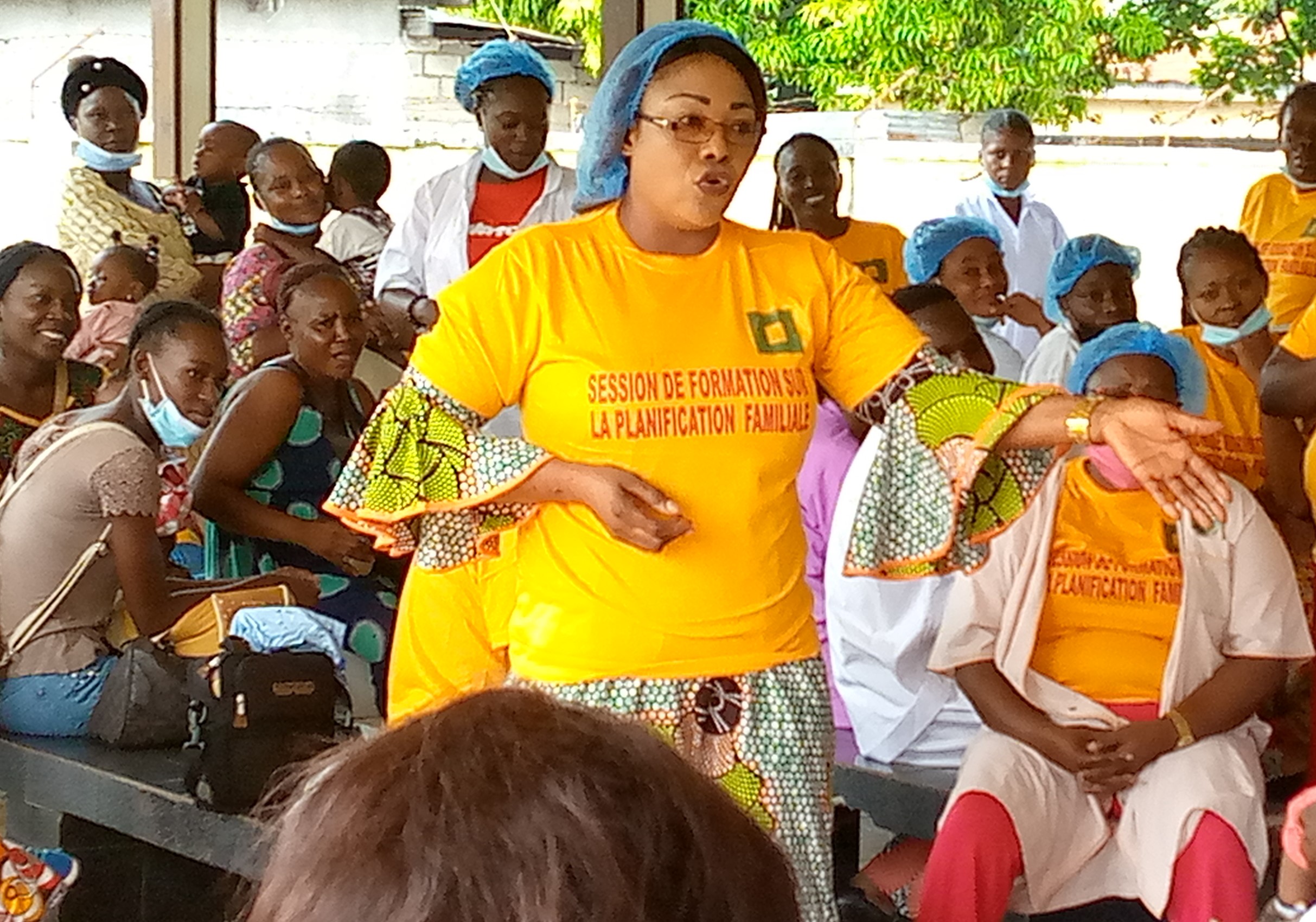
CODYFA is a coalition of several indigenous girls' groups based in South Kivu in the DRC. Having lost friends from unsafe abortion, the young women of CODYFA work to improve access to contraception and safe abortion in their own rural communities.
Although the DRC has liberalised its abortion law, the implementation of services in rural areas, along with significant stigma and unfavorable social norms continues to create barriers to access to safe abortion services for indigenous youth and adolescents and other marginalized groups. CODYFA will share information about the right to safe abortion in community workshops as well as a series of local radio programmes. Alongside this awareness raising they will build a network of safe abortion providers and in collaboration with the Congolese Society of Midwifery Practices will train and mentor midwives to mobilise other midwives to build a broader community of providers supportive to young people’s reproductive health needs.
Visit CODYFA's Facebook Page.

IJEFA will work in partnership with two other youth organisations in DRC to focus on improving young people’s knowledge of safe abortion options, and access to high quality reproductive health care.
Young women are particularly at risk from accessing unsafe abortions due to stigma, and lack of reliable information on their sexual and reproductive health. IJEFA will therefore use SAAF funding to strengthen and expand the ‘Tantine Marthe’ helpline. The helpline was set up in 2019 and requires new software and training of staff to improve its reach. IJEFA will carry out a campaign to promote the helpline in targeted rural areas where there are no authorised clinics or referral pharmacies.
Alongside this, the organisations involved will work to strengthen the knowledge and engagement of the youth movement in the DRC, and carry out sensitization sessions with community members to improve awareness of safe abortion.
Visit the IJEFA website.

CONGO, DRC
REPRO JUSTICE CONGO
RJC is a feminist organisation that fosters women's leadership, promotes gender and environmental justice, democracy, and access to sexual and reproductive health information and services for all in the DRC.
RJC will use SAAF funding to strengthen their existing reproductive health hotline to provide support 24 hours a day, every day. They will train counsellors to offer information and support and publicise the hotline in local communities to ensure those with the least access to services can speak to someone about their options. RJC will also organise exchange and capacity-building workshops for healthcare providers, pharmacists and helpline counsellors to ensure they are complying with the national standards for abortion care in the DRC.
Visit the Repro Justice Congo website.

Congo, DRC
SOS femme enfant en catastrophe (SOSFEC)
SOSFEC works in South Kivu, an area of the DRC which has been affected by conflict for many years, and where women and girls are at high risk of sexual exploitation. Noting that women were dying from unsafe abortion procedures, SOSFEC first applied for SAAF funding back in 2014. Over the past eight years, through their training and engagements, they have seen a decrease in deaths from unsafe abortion.
SOSFEC carries out a range of community based activities to prevent unsafe abortions and improve information and access to safe reproductive healthcare.
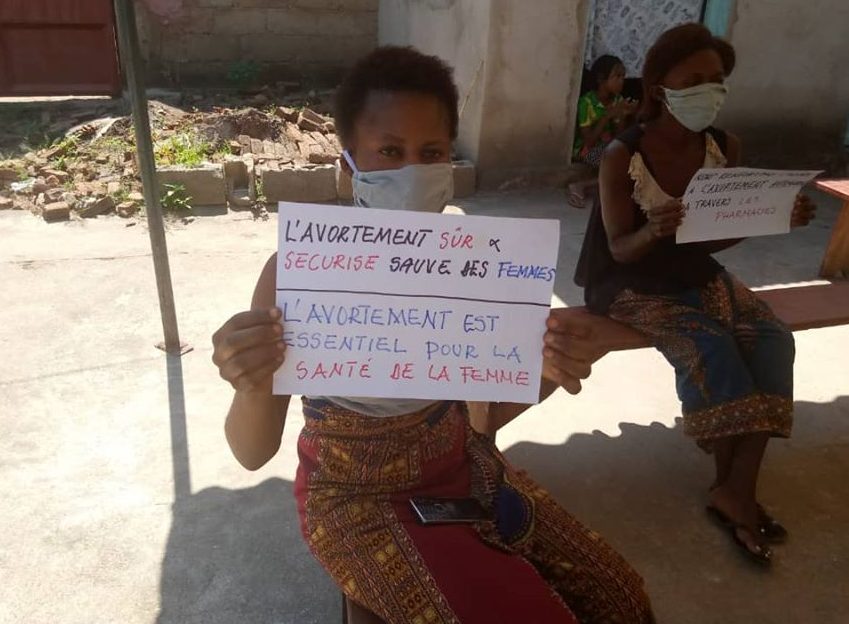
Côte d’Ivoire
CONSCIENCE ET VIE (COVIE)
In 2019, the conditions for access to legal abortion in Côte d'Ivoire were expanded. Abortion is now allowed in various situations and Misoprostol is officially approved. Yet, as an organisation founded by and for sex workers, COVIE notes that sex workers and other marginalised women continue to face specific barriers to accessing safe abortion. The supply of legal services remains uneven.
COVIE will use SAAF funding to advocate for clarity on the legal framework for abortion, in particular through values clarification sessions for judges and policymakers. They will also work to improve access to reproductive health care for sex workers and young women, with a focus on engaging and training pharmacists to provide clear, accurate, and non-discriminatory information on medical abortion.
Visit COVIE's website.

Ghana
MABIA-Ghana
Despite a relatively liberal abortion law and flexible policy environment, myriad unsafe abortions still occur in Ghana outside the formal health system. This is due to ignorance of the abortion law (including among healthcare providers), limited availability of legal, safe abortion services in accredited health facilities, and social stigma.
With funding from SAAF, MABIA-Ghana works to minimize needless deaths and disability from unsafe abortion, and to uphold women’s right to safe, legal abortion in the North-East region of Ghana. They provide clinical training to increase the number and competency of midwives able to provide comprehensive abortion care and long-term contraceptives. The 15 clinical sites they work with also provide reproductive health services to women and girls in underserved areas.
Visit the MABIA-Ghana website.

WODA is the first ever network created and run by sex workers in Ghana. It aims to provide female sex workers with a network of peer support, so that they can boldly and confidently claim their rights.
Seeing the barriers faced by sex workers when it comes to accessing support with unwanted pregnancies and safe abortion, WODA will use SAAF funding to reach those living in slums to realise their reproductive rights.
They will improve attitudes amongst service providers to educate them on the needs of sex workers, and the importance of providing non-judgemental abortion support. WODA will use theatre to convey the real-life experiences of sex workers and the need for respectful care. They will also provide direct support to women seeking safe abortion services by providing transport, child-care expenses, and even accompaniment to the clinic by a designated member of the network.
Visit WODA's website.

TWIN will work to create a national network for the promotion of safe abortion in Guinea. Noting a lack of community activism and strong national advocacy on the right to safe abortion, TWIN will work with community-based women’s and youth groups to build their capacity on safe abortion, including self-managed abortion. They will carry out community dialogues and educational talks to increase the number of advocates involved in this national movement.
Once community organisations have been mapped and engaged, TWIN will work with them to develop statutory and legal documents for the network and organise a national workshop to bring together members and obtain government approval. Overall, they hope to see improved communication on the right to safe abortion and better knowledge of safe abortion options being shared amongst communities.
Visit the TWIN website.

With funding from SAAF, the Africa Center for Health Systems and Gender Justice (AcHsGJ) will leverage its established networks and expertise to convene an interdisciplinary coalition of medical practitioners across Kenya committed to advancing the right to safe abortion. These providers will receive comprehensive training, deepen their knowledge on safe abortion care, and strengthen their capacity to advocate for improved services nationwide.
As part of this work, the Center will co-design a Continuing Professional Development (CPD) curriculum on abortion care with medical associations, aligning with constitutional and clinical standards. The Center envisions the curriculum would be formally endorsed by the Kenya Medical Association and safe abortion incorporated into training programmes for medical practitioners.
Visit the AcHsGJ website.

With SAAF funding KELIN use their litigation and advocacy skills to improve the legal environment through the enactment of a model Reproductive Health law in Nakuru County. They also plan to develop a legal precedent on the unconstitutionality of retrogressive county laws through strategic litigation and expand their litigation fund to provide legal support to health providers and clients targeted for abortion related offenses.
Visit the Kenya Legal & Ethical Issues on HIV and AIDS (KELIN) website.

In Kenya, a lack of accurate and reliable information on the availability of safe medical abortion results in a substantial number of women seeking unsafe abortion services. Within rural areas, challenges go beyond just lack of information, to inaccessibility of the medications needed. K-PEN will work in rural areas in Migori to improve knowledge of and access to safe abortion, with specialised support for young women.
They will train youth peer providers, community health volunteers, pharmacists and nurses on medical abortion and ensure clinics have access to the equipment needed to manage post-abortion care. Alongside school health campaigns and community meetings to share information on sexual and reproductive health, they will refer to two existing safe abortion hotlines to ensure practical support is available.
Visit the K-PEN Facebook page.
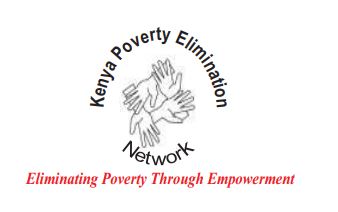
RAI is a refugee-led non-governmental organisation headquartered in Kakuma Refugee Camp, Kenya. Having been part of the first-ever Research for Health in Humanitarian Crises (R2HC) Study on self-managed abortion in the camp, RAI gained valuable insights into the opportunities and barriers youth face and the unsafe methods many, particularly refugee women and girls, resort to in ending pregnancies.
RAI’s SAAF funding will be used to strengthen the community referral system for safe abortion in and around Kakuma, and to engage refugee-led networks to build capacity in advocating for better access to abortion and reproductive health care.
Visit the Resilience Action International website.
The RHS clinic has been providing comprehensive abortion services in Nairobi since 1994 and has been a centre of excellence for abortion training in Kenya.
RHS intends to train and support providers to improve the provision of safe abortion services, and expand health care professionals’ interpretation and understanding of the law. They will especially focus on supporting private providers, who tend not to be considered for government trainings and technical support. RHS will work with these private health providers to ensure their facilities are formally registered and set up to provide safe abortion and post-abortion care. They will arrange for clinical personnel to be seconded to the RHS clinic and to ensure that free services can be provided for those who cannot afford the fee.
Visit the Reproductive Health Services website.

TICAH envisions a safe and just world where rights are realised, the beauty of culture and diversity are celebrated and holistic health is attained. Their SAAF funded work aims to make reproductive choice and safe abortion understood and accessible to a wider range of Kenyan women and girls especially young, underserved and vulnerable women.
Working with women and girls in Nairobi, Central and Coastal regions, TICAH aims to improve their knowledge, agency and ability to make choices on contraception and safe abortion. SAAF funding is also used to strengthen the Aunty Jane hotline that people call from across Kenya to get information on sexual and reproductive health issues.
Visit the Trust for Indigenous Culture and Health (TICAH) website.
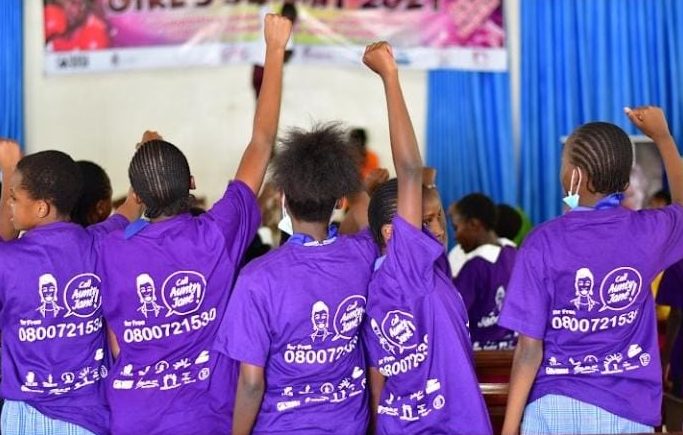
URHA provides high-quality, youth-friendly sexual and reproductive health services through its 24-hour clinic based in Kajiado County, south of Nairobi.
With SAAF funding they will increase the provision of contraception and safe abortion services for young women in the County. This involves training and mentoring peer champions on reproductive health options and services, as well as strengthening the local referral system by training pharmacists and community health volunteers. URHA already has a strong social media presence and will take time to create a strategy which works to increase engagement, giving a greater platform to inform young people about the services available to them, but also to influence national and regional policy and practice on safe abortion.
Visit URHA's website.

Women Spaces Africa is a feminist disability-led grassroots organisation which focuses on reproductive health and rights for women with disabilities.
Their SAAF funded work will address the specific barriers to non-judgemental abortion care faced by girls and women with disabilities (including lesbian, bisexual and queer women with disabilities). WSA will identify and train abortion doulas from women-led disability organisations to provide tailored information and support referrals to friendly providers.
They will also create resources such as a video on safe abortion protocols in Kenyan sign language to ensure that Deaf people can be better informed on self-managed abortion methods.
Visit the Women Spaces Africa website.

Lawmakers in Liberia have been considering a bill to expand legal access to abortion. If passed, the bill would cement Liberia's position as one of the most liberal countries in West Africa on reproductive rights.
CHI will advocate to ensure this bill is passed and implemented. Firstly, by organising regular meetings with other community-based organisations through a national SRHR network. They will carry out collective advocacy actions to influence decision makers and duty bearers into supporting the passing of the revised public health law.
CHI will also conduct weekly community outreach sessions in communities with a mobile clinic offering contraceptive services as well as referrals to abortion care. They will train community health workers to ensure a greater number of health facilities are equipped to provide safe abortion care.
Visit the Community Healthcare Initiative website.

The Madagascar branch of the international youth movement IYAFP will partner with Association Régionale des Sages-Femmes Matsiatra Ambony (a regional network of midwives) to improve access to reproductive health information and support for young people. Together, the two organisations provide a complementary and targeted approach: IYAFP Madagascar works to raise awareness and advocate among young people and communities, while the Association of Midwives strengthens technical capacities and access to essential care.
Their SAAF funded work will aim to expand access to reliable, comprehensive and non-stigmatising information on sexual and reproductive health, including safe abortion. This will include community dialogue sessions targeting young people as well as creation of a network of midwives who are willing to champion the right to safe abortion.

With SAAF support, CSJ News is focused on advocating for the enactment of the Termination of Pregnancy Bill in Malawi which would legalise abortion under a number of circumstances. The project builds the capacity of women's groups to advocate for abortion law reform as well as lobbying MPs directly to get their support. The key activities of the project will be lobbying (engagement with lawmakers), capacity building (training of rural women advocates) and production and broadcasting of an abortion law reform radio programme and jingles.
Visit the Centre for Solutions Journalism (CSJ News) website.
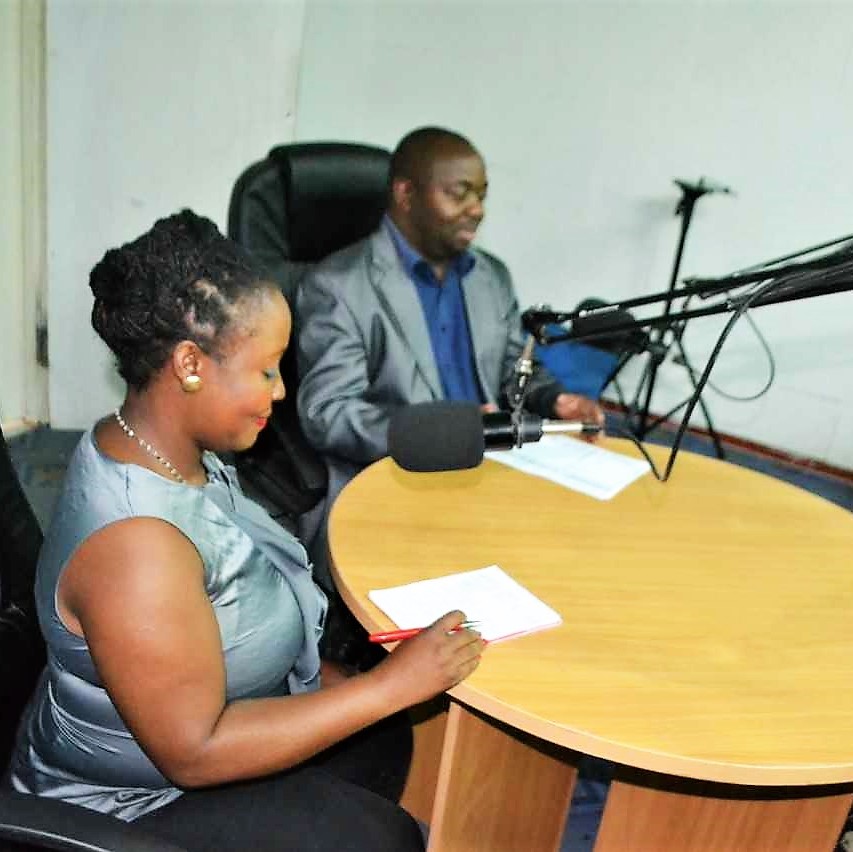
Nigeria
Generation For Environmental Education and Enhanced Renewal (GREENER)
GREENER’s SAAF funded work is focused on reducing harm faced by women living in these remote communities, where the lack of quality and accessible healthcare combined with deep rooted stigma means that many women are forced to resort to unsafe methods to end pregnancies. Staff from pharmacies and health clinics are trained on non-judgemental pregnancy counselling, administration of medication for safe abortion care, and post abortion care including contraception. Women and girls in the community are also trained as ‘change agents’ to raise awareness about reproductive rights, break down myths and misinformation, and where appropriate, refer their peers to services. They also share information about GREENER’s free transport service to access contraceptive services from public health facilities in the larger cities.

With previous support from SAAF in 2014 GIWYN set up the Ms Rosy hotline which provides free, reliable, and non-judgmental reproductive health and rights information.
GIWYN’s current SAAF funded work will strengthen the hotline and expand its reach by training not only more counsellors, but also organisations who are part of the The National Coalition for Reproductive Justice. This bolsters referral networks for the hotline, as well as increasing sources of reliable information on safe abortion.
GIWYN will also provide specialised outreach on self-managed abortion to those living in slum areas and rural communities.
Visit the GIYWN website.

Nigeria
International Centre for Poverty Alleviation and Sustainable Development (CENPAD)
Using SAAF funding, CENPAD aims at reducing this by using a harm reduction approach to ensure that women and girls have improved knowledge and access information on menstrual regulation through medication, alongside increased access and uptake of post-abortion contraception. Thereby ensuring that the women and girls whose rights have already been violated are not further violated by forced pregnancy, death or disability.

Nigeria
Women Friendly Initiative (WFI)
WFI is now building the capacity of a new cohort of providers and training youth peer provider to mobilize youth across the Federal Capital Territory. This will expand and sustain access to post-abortion care, safe abortion and post-procedure contraception to reduce maternal mortality and morbidity resulting from unwanted pregnancy, unsafe abortion and its complications.
Visit the Women Friendly Initiative (WFI) website.

Niger
ANONYMOUS ORGANISATION
In Niger, the restrictive legal framework on abortion is a major obstacle to the sexual and reproductive health rights of women and girls and unsafe abortions are common. Abortion remains a taboo subject influenced by religious and cultural norms, preventing women from seeking services or support.
This organisation will work to strengthen access to information and supportive services in the area of reproductive health.

Friends of Health Initiative (FHI) was founded in 2020 by young people from diverse backgrounds committed to improving the health and living conditions of underserved communities in Rwanda.
Although Rwanda liberalized its abortion law in 2012, many barriers to safe access still remain. In the Rulindo district, young women in particular are at risk of unsafe abortion, due to a lack of awareness about safe abortion and where to go for support. Since it is still common for those with an unintended pregnancy to visit a traditional healer, FHI plans to work with these traditional healers to improve their awareness of safe methods, and incentivize referrals to medical providers.
FHI will also train peer educators to directly engage young people with accurate information about their reproductive health and rights. And, working with healthcare providers they will improve the provision of high-quality, stigma-free services at the district hospital and selected health centers in the Rulindo district.
Visit the FHI website.

MDFC is a non-governmental organisation founded by a network of Rwandan pro-choice health care providers who believe in the right to choose and individual body autonomy.
Engaging their existing network of 117 trained and reliable abortion providers, MDFC will undertake a number of activities to improve the provision of safe abortion care in Rwanda. They will establish Safe Abortion Focal Teams, consisting of a doctor, midwife, and clinical psychologist in all district hospitals to provide comprehensive abortion care and address and monitor unlawful barriers.
They will also develop and pilot a telemedicine platform enabling remote consultations for abortion services, with the hope of seeing this option approved and supported by the Ministry of Health.

RWANDA
Women Rise for Change (WRC)
In 2018, Rwanda amended its abortion law to allow legal abortion under certain circumstances including pregnancies resulting from rape, incest, child and forced marriage, and where the pregnant person’s health is at risk. Despite this liberalisation of the law, many girls and women still do not have access to safe abortion care. WRC has found that those living in refugee camps are particularly underserved and thus at risk of seeking unsafe abortions and being subjected to forced pregnancies.
WRC will work in the Mahama camp, which accommodates over 50,000 people. Using SAAF funding they want to ensure that safe legal abortion services are integrated into the sexual and reproductive health services being provided in the camp. They will advocate for delivery of safe abortion information and services, and train nurses and midwives working in the camp on the provision of medical and surgical abortion.
In order to ensure those living in the camp are aware of their rights and are better able to access safe reproductive health care, WRC will carry out values clarification sessions alongside trusted partners such as peer educators, community health workers and local leaders.
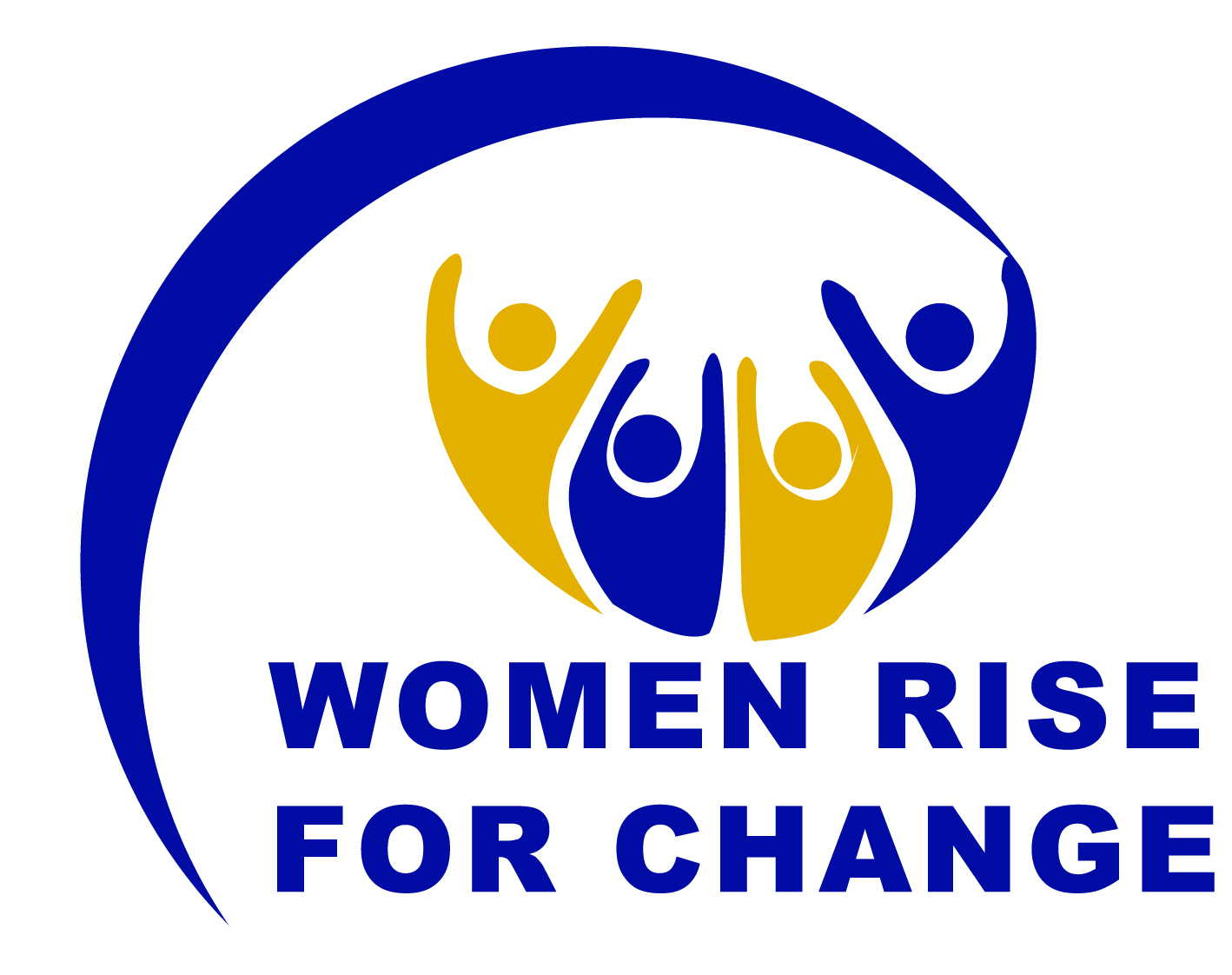
São Tomé and Príncipe
Associação Santomense para Promoção Familiar (ASPF)
First funded by SAAF in 2018, ASPF will continue their important work increasing the availability of safe abortion services in São Tomé and Príncipe.
This includes the provision of reproductive health care services through their own clinics, as well as training more health care providers to deliver high quality abortion care. This will include best practices on newer methods of abortion care in the country, such as telemedicine.
ASPF will also train young peer educators to share information about the availability of safe abortion care, and provide education sessions in schools and the community.
Visit the ASPF Facebook page.
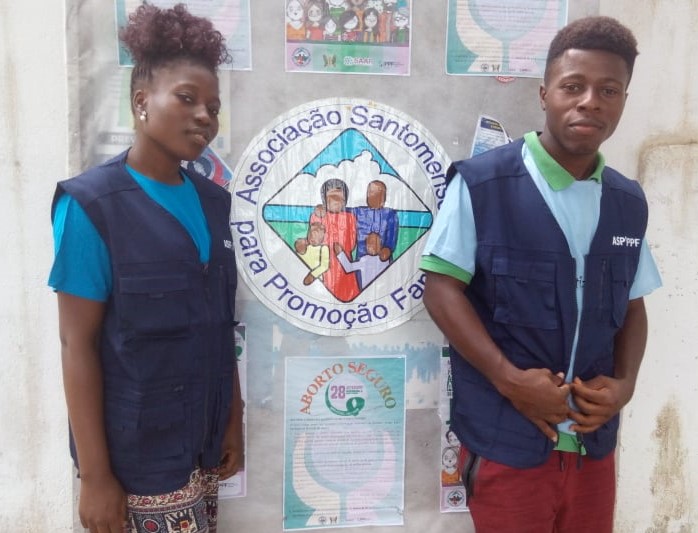
south africa
Abortion Support South Africa (ASSA)
Telemedical abortion is now available in South Africa. The requirement for patients to visit a health facility in person to obtain abortion pills was lifted during COVID lockdowns. With technical support from Women on Web ASSA will pilot a low-cost telemedical abortion service in South Africa.
A recent randomised control trial, conducted in Cape Town, showed that telemedical abortion is safe, effective and satisfactory for the South African women who use it. The coalition will pilot an abortion option for those who will particularly benefit from not having to travel and/or having a lower cost option available. For example, those living far from a clinic, young people, economically marginalised people, migrants and refugees, those living with a disability and women who prefer an at-home abortion.
The coalition will work to further research on the acceptability and accessibility of telemedical abortion in this context and advocate for more integration of alternative methods of abortion care into the public healthcare system.
Visit the Abortion Support South Africa website.

south africa
gender rights in tech (grit)
GRIT's primary focus is to use technological interventions to connect sexual and gender-based violence survivors to care and justice services. GRIT has co-created a generative AI Chatbot, Zuzi, to provide survivors with confidential, trauma-informed, accurate, and localised information and referral to resources. They plan to use SAAF funding to expand the Chatbot's capacity to include information about safe abortion options, including self-managed abortion, navigating barriers to access, and referral pathways for reproductive healthcare.
GRIT will work directly with survivors and groups historically excluded from tech development to co-create a dataset for the South African context which is culturally relevant and captures the linguistic nuances and differences across the country including those living in rural, township and migrant communities.
The co-creation process will aim to ensure that the guidance given through the app is effective, accessible, survivor-centered and aligned with reproductive justice approaches.
Visit the Gender Rights in Tech website.

AWAC is an umbrella network for grassroots female sex worker-led organisations in Uganda.
AWAC will work with sex workers in Uganda to increase awareness of safe abortion options and to reduce abortion stigma in the community. They will hold public events on bodily autonomy and the need to decriminalise abortion, including a national march and press conference for International Women’s Day.
They will also train health care workers to be non-judgemental in the provision of abortion services to sex workers and will form referral partnerships with friendly health facilities which perform abortion and post-abortion care. AWAC will work directly with female sex workers to ensure they understand their rights, the risks of unsafe abortion, and have information on safe abortion medication and self-care.
Visit the AWAC website.

Uganda
St. Augustine Community Health Centre
With SAAF funding, they work to improve knowledge about abortion issues, increase access to abortion-related care and improve attitudes and beliefs of community members towards abortion in the Mbarara District.
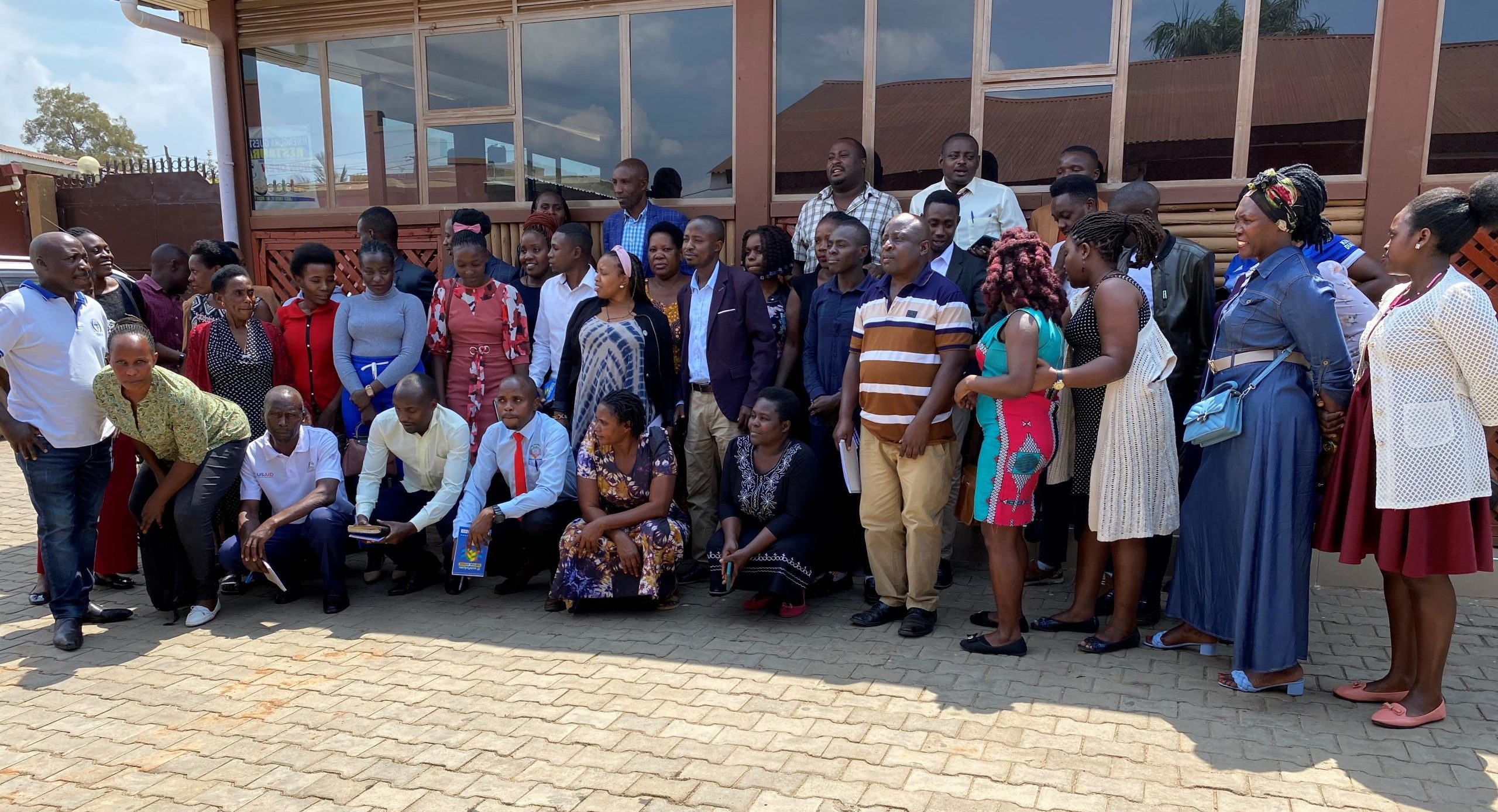
Using SAAF funding, COHERINET works to empower women by increasing their knowledge about safe abortion with pills by maintaining the Aunt Kaki sexual health hotline. It also implements community level strategies to advance the roles of lay health workers and promote the hotline widely among particularly vulnerable groups. The project improves the operating environment for safe medical abortion service providers by sensitizing Ministry of Health officials, law enforcement officers and human rights organisations on sexual reproductive health rights.
Visit the The Community Health Rights Network (COHERINET) website.
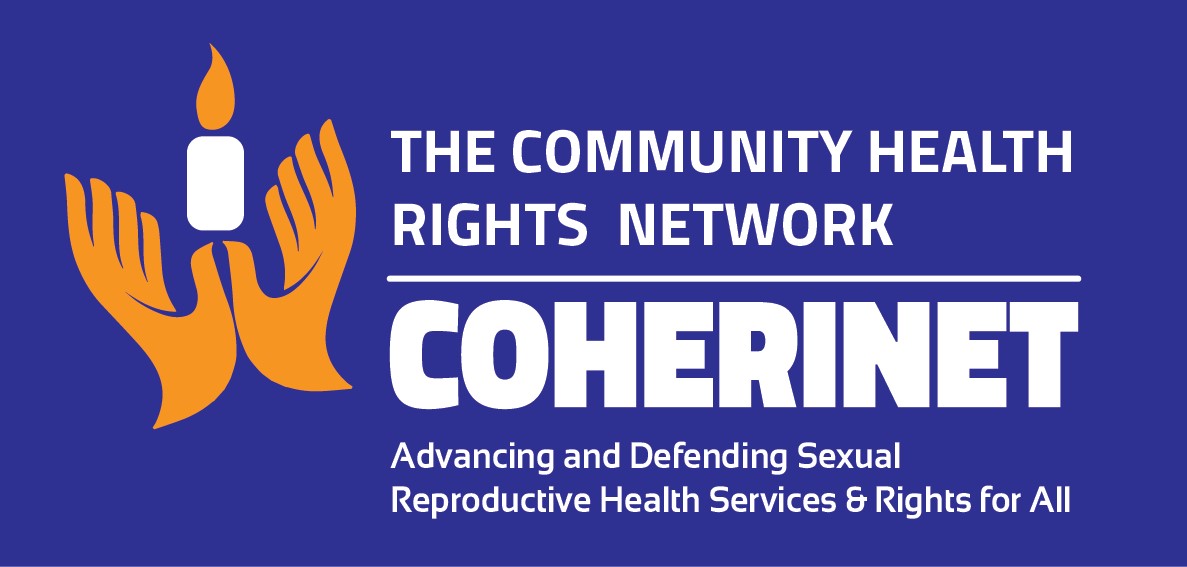
With SAAF funding FMP will work with girls and women of reproductive age (including sex workers) living in fishing communities in the lakeshores and landing sites of Lake Victoria in Uganda.
FMP has found that safe abortion is near to impossible to access in these lakeshore communities, due to a limited number of trained service providers and high costs of services which lead sex workers to opt for cheaper, less safe options. FMP will partner with eight medical centres to provide values clarification and training and support on safe abortion options. They will also deploy Community Peer Mobilizers from the community to engage women and girls in small community discussions where they share non-technical information on reproductive health and respond to inquiries on abortion.
Those who need more technical information are referred to a ‘Musawo Session’ - a weekly community meeting between women, girls and medical workers (Musawo) within their community. These sessions provide an opportunity to debunk myths associated with abortion and provide scientific and practical information on abortion, costs, and selfcare.
Visit the FMP website.
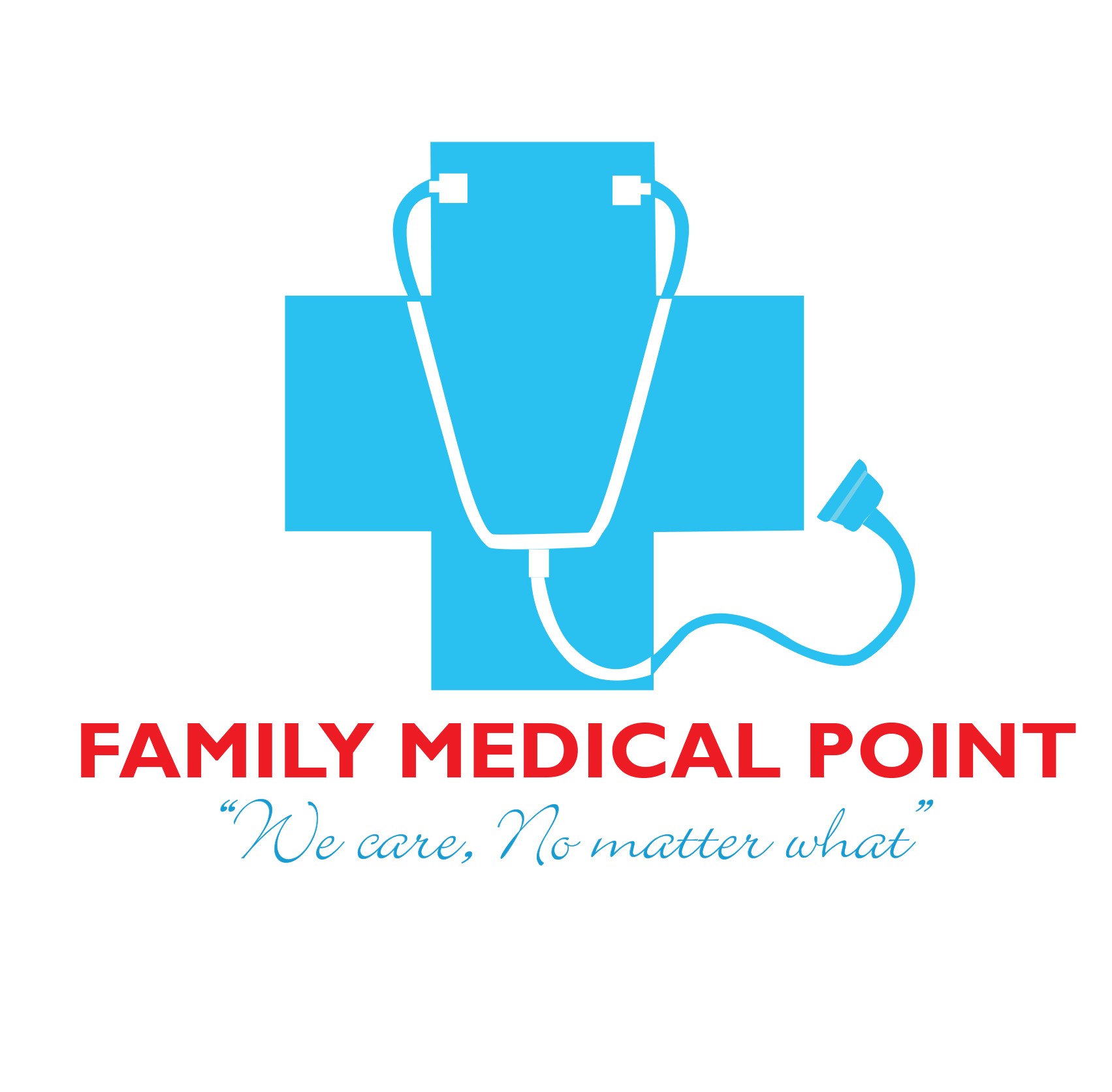
Uganda
FLAMA UGANDA
FLAMA Uganda first started receiving SAAF funding in 2017. They work to provide and ensure access to high quality, non-judgmental and affordable healthcare services in Northern Uganda.
FLAMA will provide training and mentorship schemes for health care providers to improve access to reproductive health services. They will also develop a telemedicine system for provision of safe abortion care, with a particular focus on younger women, who are currently underserved and lacking access. FLAMA will deliver community outreach and targeted media campaigns to let girls and women know their rights and how to access safe reproductive health care and information.
Visit the FLAMA Uganda website.

Uganda
RURAL AID FOUNDATION (RAFO)
Rural Aid Foundation works to promote and advance digital, health and economic rights for marginalised communities in Uganda.
They will work in two districts with high migrant populations, where rates of teenage pregnancies are high and safe abortion information and services are scarce. These fishing communities are far from health facilities, and those with unplanned pregnancies are most likely to seek support from traditional birth attendants, leading to complications caused by unsafe abortions.
Rural Aid Foundation will increase migrant women and girls’ knowledge of safe abortion options by scaling up their existing ‘Women Health Ambassadors’ model. These local champions will share harm-reduction information, and even use ‘talking books’ to record information and dispel common myths and misconceptions about reproductive health.
Health care providers will also be trained on the national self-care guidelines and harm reduction techniques regarding abortion and post-abortion care and supported to provide high-quality, non-judgemental abortion services to those who satisfy the legal criteria.
Visit the Rural Aid Foundation website.

Uganda
Tusitukirewamu Group
Following on from succesful SAAF supported projects, Tusitukirewamu continues to work with peer educators and outreach workers in the community to increase awareness on the availability of high quality abortion and contraceptive services. They support local health facilities so that they are able to provide safe abortion and post-abortion care using modern techniques and promote women’s rights and health seeking behaviour through online and offline activities, as a way of soliciting for support to fight abortion stigma, unsafe abortions and GBV cases.
Visit the Tusitukirewamu Group website.

Uganda
Volunteers for Development Association in Uganda (VODA Uganda)
Girls and women in rural Uganda face extreme gender inequality which is a cause and consequence of the high levels of sexual exploitation, incest and violence faced by many young girls and women. Young people have little access to sexual and reproductive health services and abortion is highly restricted.
VODA Uganda empower young people as change-makers in their schools and communities. Unsafe abortion was once a widespread problem in the area but through the power of peer education and by working with community leaders as well as youth, community attitudes toward abortion have been transformed. Deaths due to unsafe abortion have almost disappeared and community leaders and health providers are now calling for safe abortion to be made available for more young women in need.
You can read more about VODA's work on the SAAF stories page.

Voices is a feminist, women-led not-for-profit organisation that uses strategic communication to advance the rights of girls and women – with a focus on sexual and reproductive rights and gender-based violence.
Voices will focus their SAAF-funded work on supporting university students to increase their awareness of and access to safe abortion options. They have found that students have high levels of unplanned pregnancies and that the majority choose to end these pregnancies. However, they are often not aware of their legal rights to abortion, and of safe options available to them, and many suffer complications from unsafe options.
Voices will work to improve students’ knowledge of safe and accessible abortion options through training Campus Health Ambassadors who can support and educate their peers by creating safe spaces and sharing accurate information. Voices will incorporate a sexual pleasure-based approach to engage young women with their bodily autonomy and increase their confidence to make choices about their sexuality.
Visit the Voices website.

Uganda
ANONYMOUS ORGANISATION
Uganda's abortion law allows for abortion only in certain situations, where a woman's life or health is in danger. However, guidelines from the Ministry of Health contradict the penal code by also allowing abortion in cases of fetal anomalies or rape. There is a lack of clarity on when abortion can legally be provided and health care workers refuse to provide abortions for fear of prosecution. Uganda's rate of unsafe abortions thus remains high.
This organisation will work with key community stakeholders to increase knowledge of the law and to encourage providers to work within it to provide essential reproductive health care.

Zimbabwe
Zi-Safe
Institute for Young Women Development (IYWD) and Health Law and Policy Consortium (HLPC) will work together to improve understanding of and support for abortion rights and post-abortion care, and to influence policy and legislative reforms to promote safe abortion in Zimbabwe.
They will focus on improving young women’s knowledge of safe abortion and their capacity to demand reproductive rights by creating a National Feminist Movement Builder's School on abortion rights. This will raise consciousness on how lack of safe access to abortion is part of the broader systematic and structural violence used to regulate women’s rights and bodies.
Young women who have been trained will work together with Members of Parliament who have been identified as champions of access for safe abortion to promote access to safe abortion within the existing legal framework and advocate for the reform of the law.
